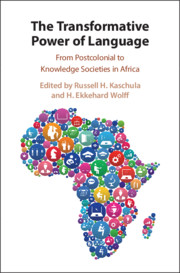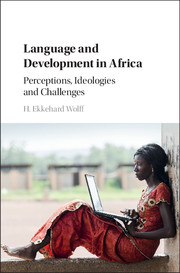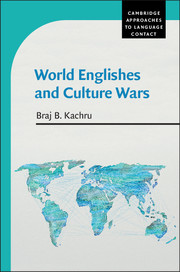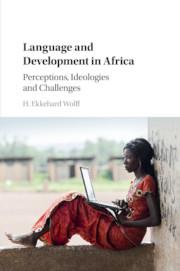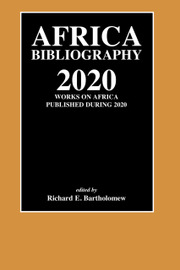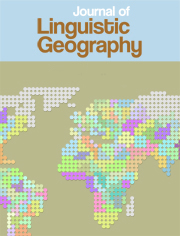The Transformative Power of Language
Language has played a pivotal role in societal transformation in postcolonial Africa towards the creation of globally competitive knowledge societies; however so far, this role has been under-researched and under-estimated. This volume addresses this gap in the literature, by bringing together a team of globally-recognised scholars to explore the effect of language on African postcolonial societies, and how it has contributed to achieving 'mental decolonisation'. A range of languages are explored, both imported (ex-colonial) and indigenous African, and case studies from different spheres of public discourse are investigated, from universities to legal settings. Demonstrating that multilingualism is a resource for, rather than barrier to, successful transformation, this book brings the intellectualisation and institutionalisation of African languages to the forefront of development discourse, and provides an insightful snap-shot of how current academic research, public discourse, political activism and social community engagement have contributed to societal transformation in South Africa.
- Provides deep insights into recent public discourse and academic research concerning societal transformation in South Africa, offering a starting point for addressing such transformation elsewhere in Africa
- The key focus is on language use in education, but it also addresses the law and includes an outlook on language and the banking business
- Includes contributions from twenty-eight researchers in a variety of subfields of sociolinguistics, such as institutional multilingualism, di- and polyglossia, language policies, language planning and language use in new and social media
Reviews & endorsements
'A welcome and important contribution to the study of the role of language in its broader social context. The focus on language as an agent of development and societal change, and particularly the use of local languages in the decolonization of higher education and knowledge creation in Africa, is especially welcome.' Bruce Connell, Professor of Linguistics, York University
‘This volume responds to Ngugi wa Thiong’o’s call to ‘decolonise the mind’ in countries of the Global South, particularly in Africa. The authors draw attention to: the necessity of, how to bring, and how to resource multilingual pedagogies in higher education. It is knowledge that resides within African languages that will unsettle coloniality and empower ‘southern’ scholars to bring about educational transformation in the Global South.’ Kathleen Heugh, Associate Professor in Applied Linguistics, University of South Australia
‘… the book is suitable for different audiences including policy makers, executive managers, student teachers, and educators, especially those working in Higher Education Institutes (HEIs) and those working in South Africa. The language of the book is also accessible and is clear for students at the undergraduate and graduate levels. The book provides an excellent starting point for researchers, students and educators who are interested in themes related to the power of languages in education, inclusion, the importance of education using the first language and those who are interested in the South African context or similar contexts.’ Shaden Samir Attia, The LINGUIST List
Product details
September 2020Hardback
9781108498821
320 pages
235 × 160 × 30 mm
0.7kg
43 b/w illus. 31 tables
Available
Table of Contents
- Introduction: Transformative power and resourcefulness of African languages in the information and knowledge age Russell H. Kaschula and H. Ekkehard Wolff
- Part I. Mental decolonisation and cultural diversity:
- 1. The role of African languages in decolonising South African universities Thulani Mkhize
- 2. Adapt or die – Maintaining or decolonising language practices? Theodore Rodrigues
- 3. Decolonising our minds, decolonising our languages: A mentalist approach to language attitudes Mantoa Motinyane
- Part II. Multilingualism and intellectualisation of African languages:
- 4. Transformative power of language policies in higher education: A legal English approach or a linguistic African language approach? Zakeera Docrat and Russell H. Kaschula
- 5. African languages in transformation: Challenges and opportunities for Zimbabwe and South Africa Emmanuel Sithole and Ziyanda Yola
- 6. Linguistic diversity in higher education: inclusion or exclusion? Zakhile Somlata
- 7. An impact study with reference to isiXhosa and Afrikaans multilingual glossaries for 1st year Law of Contracts students at Cape Peninsula University of Technology Linda Manashe, Boniface Kabaso, Monwabisi K. Ralarala, and Eunice Ivala
- 8. The need for multicultural and multilingual sensitivity in transforming Graphic Design curriculum in a University of Technology Lindie Bhebhe, Monwabisi K. Ralarala, and Alettia Chisin
- 9. An analysis of the language legislation effects in the banking sector: Towards the realisation of multilingualism in South Africa Menzi Zamokwakhe Thango and Wisdom Ntando Moyo
- Part III. Digitalisation and democratisation of knowledge:
- 10. African language resources for knowledge societies Justus C. Roux
- 11. Wikipedia as transformative multilingual knowledge resource Laurette Pretorius and Friedel Wolff
- 12. Corpora as agency in the intellectualisation of African languages Langa Khumalo
- 13. From postcolonial African language lexicography to globally competitive e-lexicography in Africa D. J. Prinsloo and Nompumelelo Zondi
- Part IV. Interlingual and intercultural cross-fertilisation:
- 14. Orality in the Digital Age Janet Hayward
- 15. Interpreting research in South Africa: Where to begin to transform? Herculene Kotzé and Kim Wallmach
- 16. Exploring the potential of increasing epistemological access for university students of African languages through the translation of English academic texts Ntombovuyo Ngaphu
- 17. Translation in foreign language teaching – cultivating critical reflection and symbolic competence Natasha Engelbrecht.

